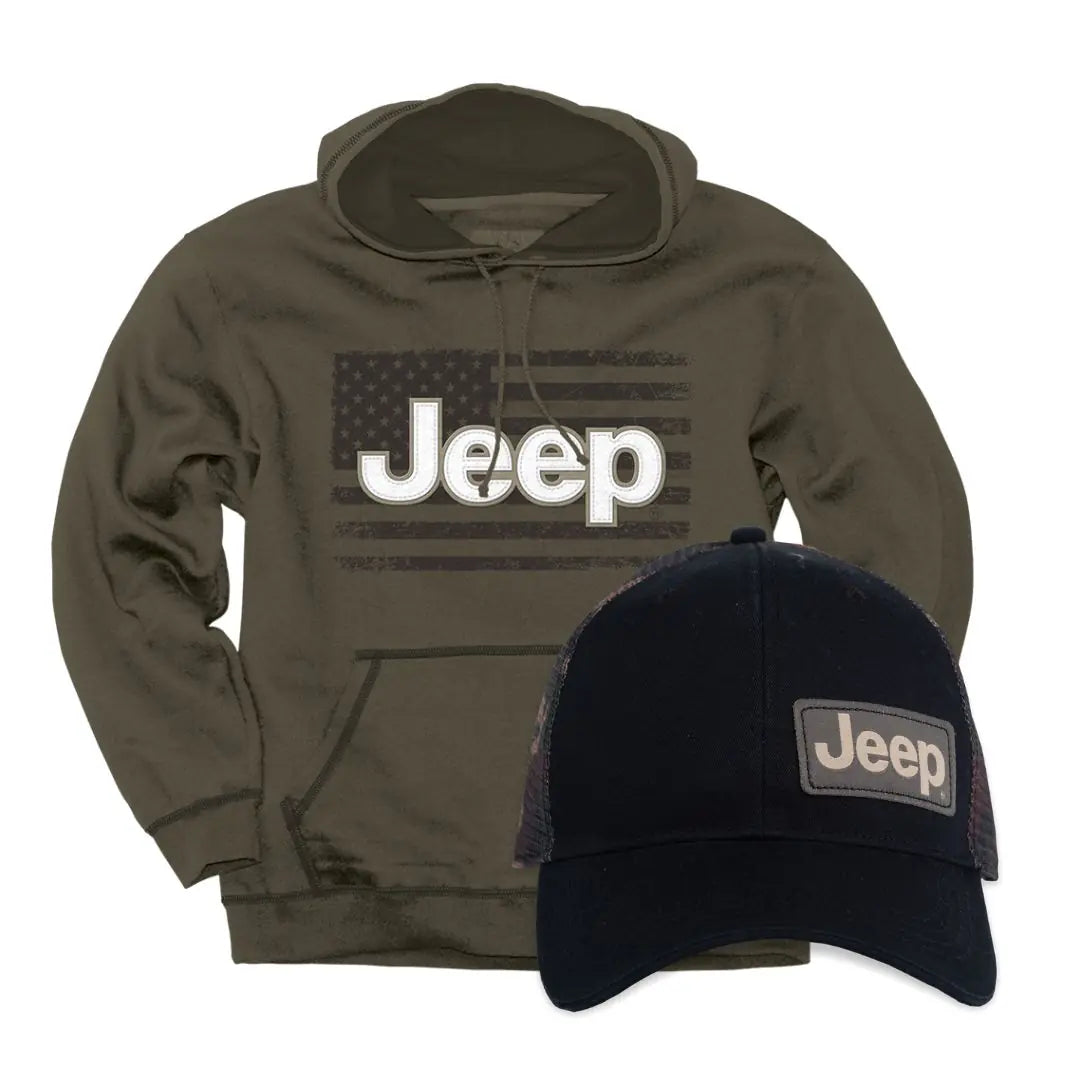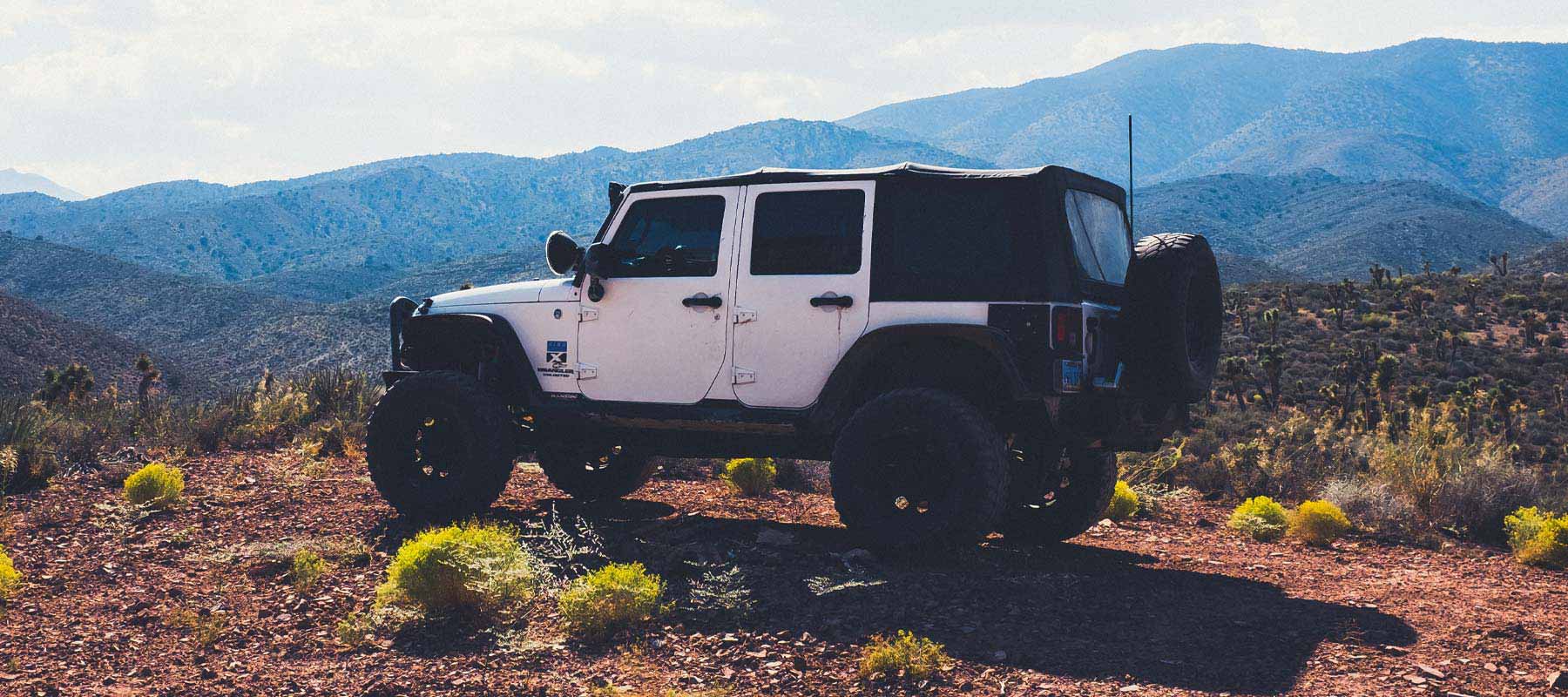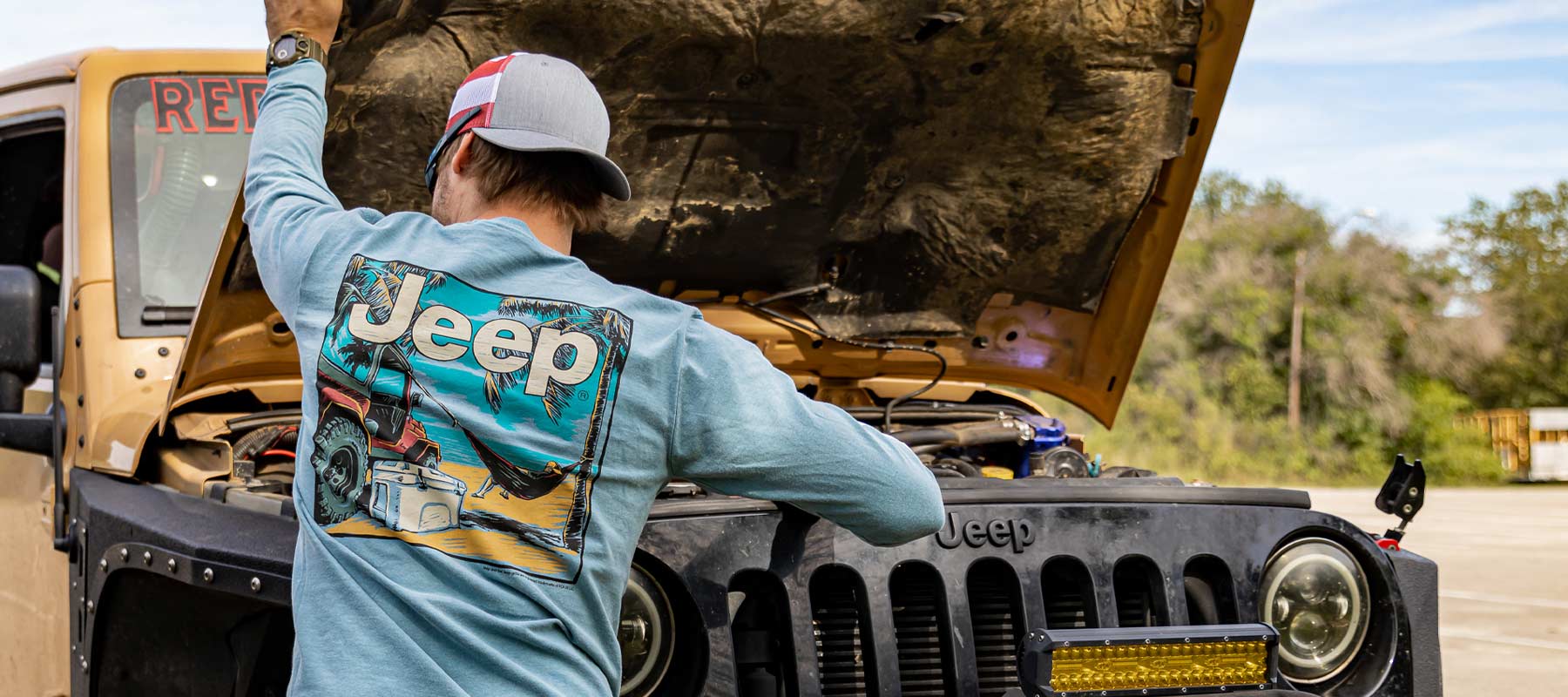Adventure Doesn't Stop for Winter, nor Should Your Jeep Care

Summer is Jeep season, but the fun doesn't stop just because the temps plummet. Winter ushers in its own type of adventures through the cold, ice, and snow. Your Jeep can tackle any icy road or snow drift, keeping you safe while still having a blast on the most frigid trail. While a Jeep can handle the coldest months of the year, not being prepared is a recipe for disaster.
You’ve got your usual basic maintenance requirements, sure, but there’s also some easy winter Jeep care tips to keep in mind. Read on for our essential list to keep your Jeep at peak performance during the hard-top season of cold and snow.
Run Your Jeep's Air Conditioner All Year-Round
Running your vehicle's air conditioner in the winter months may sound counterintuitive but this easy winter Jeep care tip has several benefits. First, the air conditioner activates the compressor, which pushes dry air out of your vents and helps defrost those foggy windows. Using the air conditioner to control the climate in your Jeep maintains your general comfort.
Secondly, running your Jeep's air conditioner year-round allows you to catch problems early. When summer rolls around, it'll be harder to find shop time to fix an air conditioner issue.
Finally, running your Jeep's AC keeps components in working condition. When a part is inactive for a long stretch and then is asked to work hard, it will be more likely to break down or malfunction.
Take A Closer Look At Your Windshield

Every Jeep owner loves taking their vehicle off-road. Unfortunately, this usually means chips and cracks in the windshield. It's vital when preparing for winter to take a closer look at the windshield and repair any small chips or cracks early. When the weather shifts from balmy evenings to frigid mornings, your windshield will contract, causing any cracks and chips to expand. Water can get into the cracks and then freeze, which can make them even worse. In extreme cases, your Jeep's windshield could become so cracked that it's impossible to see through. This simple winter Jeep care tip will save you hundreds of dollars in the long run.
Test Your Coolant
Heat in the winter is a creature comfort, but too much heat will leave you stranded. It's a good idea to test the coolant in your Jeep before winter hits to ensure your engine won't overheat when the temperature drops.
Engine coolant for your Jeep does more than just keep your engine from overheating. Coolant helps prevent the engine from freezing—thanks to the antifreeze chemicals in the liquid. It's vital that you check the coolant level and replace it with the proper coolant dilution before the winter months hit.
Keep Extra Fuses With You
Electrical problems happen to every car, but in a Jeep, keeping extra fuses is a winter Jeep care tip you don't want to skip. Spare fuses prevent getting stranded in the cold should a component of your electrical system malfunction.
It may seem like an electrical system only powers lights and radio, but in modern Jeeps, the electrical system powers computers that control your engine. When there's too much electric charge in the system, fuses blow to prevent further damage but could result in you twiddling your thumbs on the side of the road. Many auto shops and websites have kits with various fuses that are relatively inexpensive.
Test Your Heating System
It's not fun bundling up to drive around in a Jeep. Before the weather turns cold, it's a good idea to test your heating system. Start by trying your heater, even if it's hot outside. Thanks to a heating core near your engine block, it should blow hot air.
If heat never comes, it's time to start troubleshooting. Start by checking for noticeable signs of damage, broken parts, or wear. Then, when your car is cool, check the coolant. If coolant levels are adequate, find the heating core hoses and feel for heat. If there's no heat here, you'll need to replace the heating core. It can get cold out there, so this is an easy winter Jeep care tip you'll thank yourself for later.
Conclusion

Forgetting any of these easy winter Jeep care tips could have you in for a rough winter. Save yourself time, money, and, of course, being stranded in the cold by testing the vital systems of your Jeep. #1: Make sure your air conditioner and heating systems are running properly. #2: Keep a close eye on your windshield. #3: Have extra fuses on hand. Finally, #4: don't let your coolant get too low. Otherwise, you could end up stranded. Your Jeep is fun to cruise in all-year round, including in the winter months when your four-wheel drive and all-terrain tires blast through the snow and ice. Make sure you’re prepared so there’s less stress and more fun when the frost arrives.
Frequently Asked Questions
Here are a few that are commonly asked Jeep questions.
How Do I Keep My Jeep In Good Condition?
Keeping your Jeep in good condition starts with basic maintenance. This can include things you do every few months, like basic oil changes and tire pressure checks, to more significant fixes like replacing air filters and rotating tires. And whatever you do, make sure your timing belt is in good shape. Click here for a convenient Kelly Blue Book Car Maintenance Guide.
It also helps to keep your Jeep clean. The road dirt and grime will cause unnecessary paint aging and may even lead to rusting. Regular washing, particularly after mudding and off-roading, will keep your Jeep in top shape and looking its best.
In addition, park in garages when possible to protect your Jeep from the elements. Using waxes will help your paint job last longer. And don't ignore strange sounds, odd movements, or strong odors—get them fixed immediately rather than waiting for the Jeep to fix itself.
What Is The Jeep Wave?
The Jeep wave is a friendly greeting between Jeep owners as they drive past each other. The Jeep wave is simply a way to show respect from one fellow Jeeper to another. It’s most common with Wrangler owners who honor the decision of owning a Jeep and the joys (and heartaches) that come with it.
The Wave also applies to Jeep's vehicle protection program for qualified vehicles. It covers things such as roadside assistance, additional powertrain limited warranty services, and trip interruption coverage.
How Do You Maintain A Jeep?
Routine maintenance is necessary on all cars, and for a Jeep, there's no difference. Vehicle owners must keep up with frequent oil changes and tire rotations, and replace fluids and filters regularly. Your Jeep's owner's manual will have the recommended maintenance schedule for your specific model.
Jeep recommends maintenance service be performed only by expert mechanics. Mechanical repair of components can get complex, and damages lead to additional costs for vehicle owners. However, if you join a Jeep club, you can find many self-appointed “experts” to help you tinker with your Jeep.
What Should I Use To Clean My Jeep?
Dirt is a badge of honor for a Jeep owner, but keeping your Jeep in good condition means regular washes. Use automotive-approved soaps and soft sponges to protect your Jeep's paint job, especially after a good off-road mudding adventure.
When cleaning the soft top, use products like Raggtop, Mopar, and Bestop. These cleaners will help wash the mud and contaminants from the soft top without causing damage to your windows. Moreover, they don’t contain any oil, which can attract and retain dirt. But if you don’t have any of these specialty cleaners, vinegar and water or a mild dish detergent will do.
You want to avoid using strong chemicals, which will do more harm than good. Household cleaners like Windex, Formula 409, or Fantastik contain alcohol and ammonia and will dry out the soft top material, leading to cracks, yellowing, and other discoloration.
Lastly, make your Jeep really pop after a good cleaning by applying a quality wax. Wax not only makes the car shine but protects the paint from fading.
What Are The Dos And Don'ts Of Washing Your Jeep?
When cleaning your Jeep, it's essential to keep some dos and don'ts in mind. Do wash your Jeep frequently. Leaving mud and dirt will cause damage to the paint and be more challenging to clean. Also, be sure to clean all areas like the undercarriage, wheel wells, and engine compartment.
To take the best care of your Jeep, don't send it through an automatic car wash, especially with a soft top. These washes will scratch your paint and even tear the delicate materials. Also, never use abrasive cleaners like Windex, Formula 409, or Fantastik, which can damage paint and plastics. Stick to automotive-approved cleaners.
What Does A Duck Left On A Jeep Mean?
Duck duck Jeep is a practice amongst Jeep owners of putting a rubber ducky on someone else's Jeep, as a way of saying hello. It started in 2020 in Ontario, Canada. Once you spot another Jeep driver on the road, you put a duck on their door handle or windshield. This wacky game promotes kindness and is a sign of mutual respect from one Jeep driver to another.
You can also add your personal touch by including other little gifts with your duck, like notes, stickers, or a scrumptious treat. This is a great way to share your love for your Jeep Wrangler with other Jeep owners. Want to step up your ducking game? Check out the It's A Thing and Duck Duck Jeep T-shirts.
Can Jeeps Get Wet Inside?
As off-road masters, Jeep designed its vehicles to get wet inside and out. Most of the components have water-resistant seals, especially the electronics. Jeep Wranglers also come equipped with rubber drain plugs in the floor to keep it from becoming waterlogged. While this is excellent news for off-roaders, the interior isn't waterproof.
If you leave the top off during a rain or snowstorm, you'll have soaked seats. Luckily that won't destroy your Jeep, but the more it happens, the more likely you're going to have some interior damage down the road. So try to keep the rain out.
How Do You Maintain A Jeep Wrangler?
The Jeep Wrangler is like other Jeeps and needs the same maintenance. You shouldn't skip regularly scheduled maintenance, and regular car washes will help prevent wear. You should also be checking tire tread, filters, and fluids often.
Wranglers with soft tops and removable components have extra maintenance. The soft material should be treated with extra care and washed regularly, as tears are expensive. It's best to stick to hand washing and automotive-approved cleaners.





